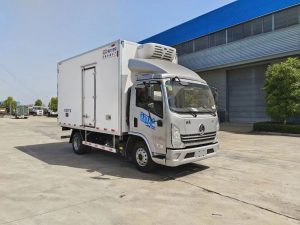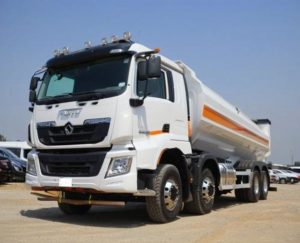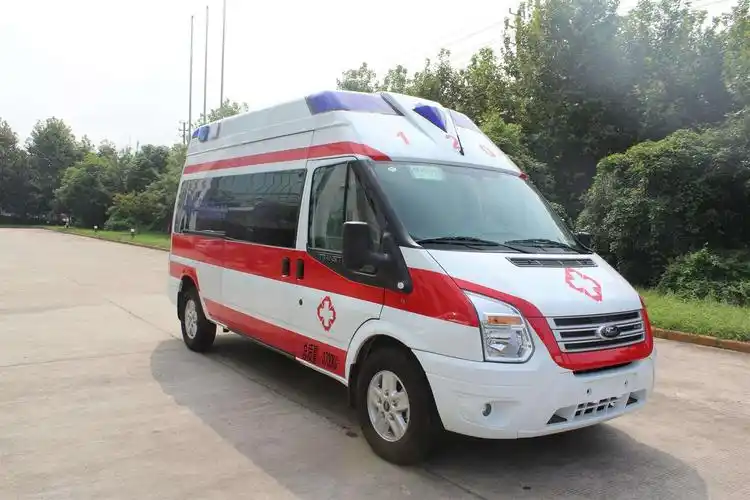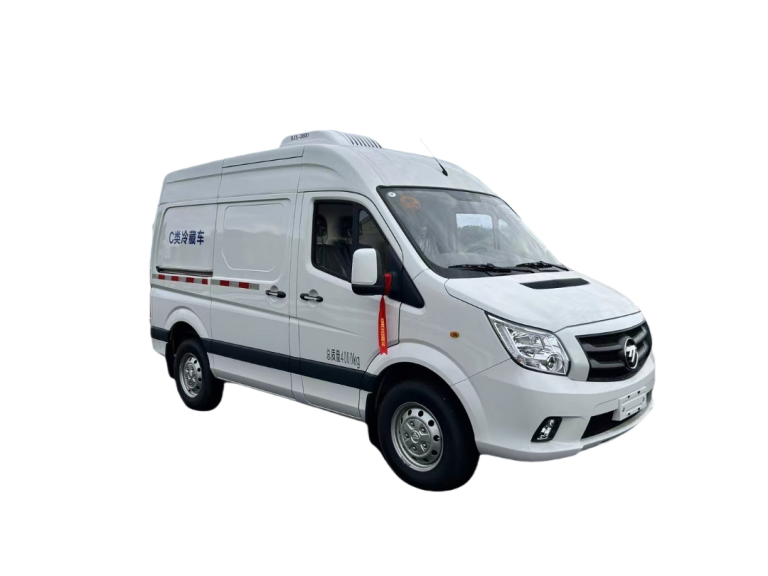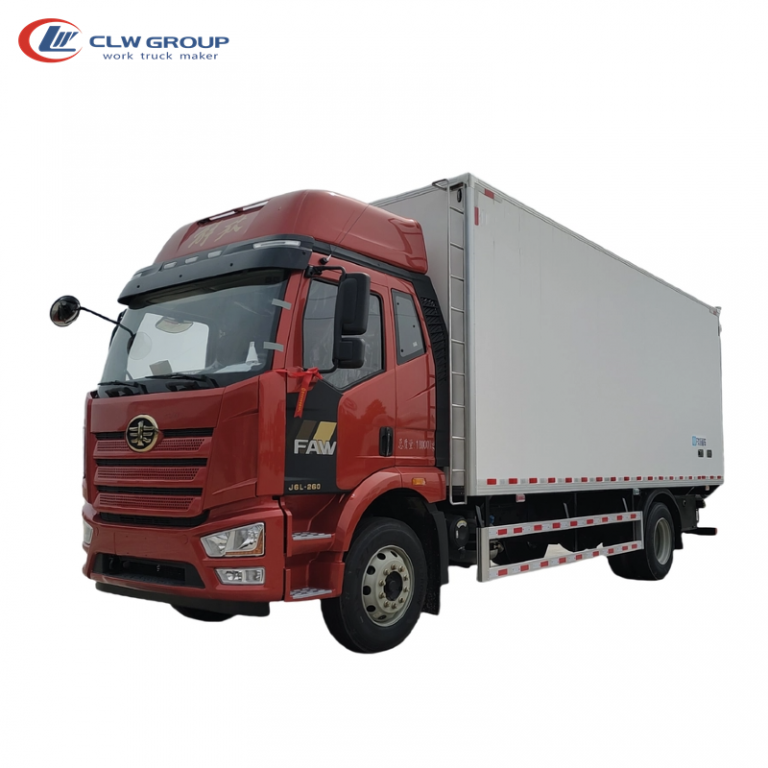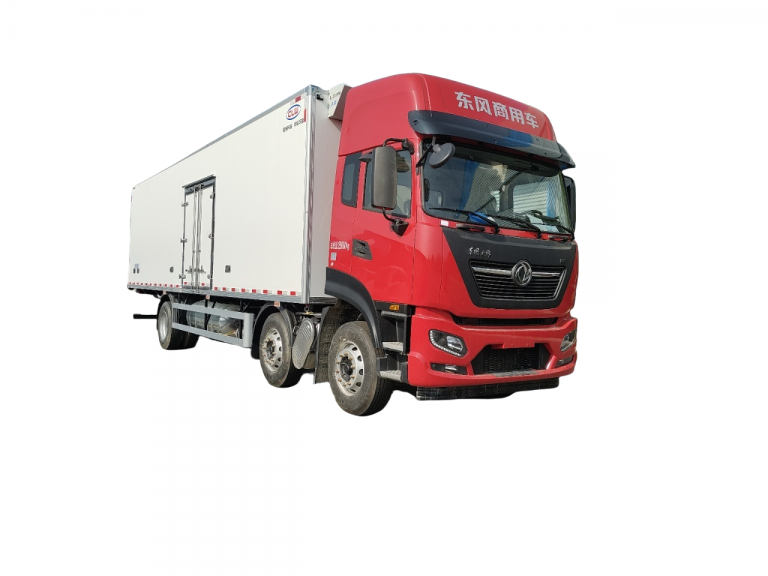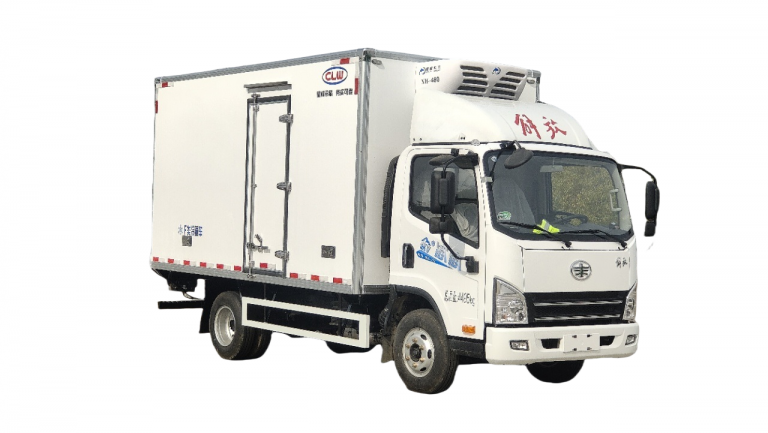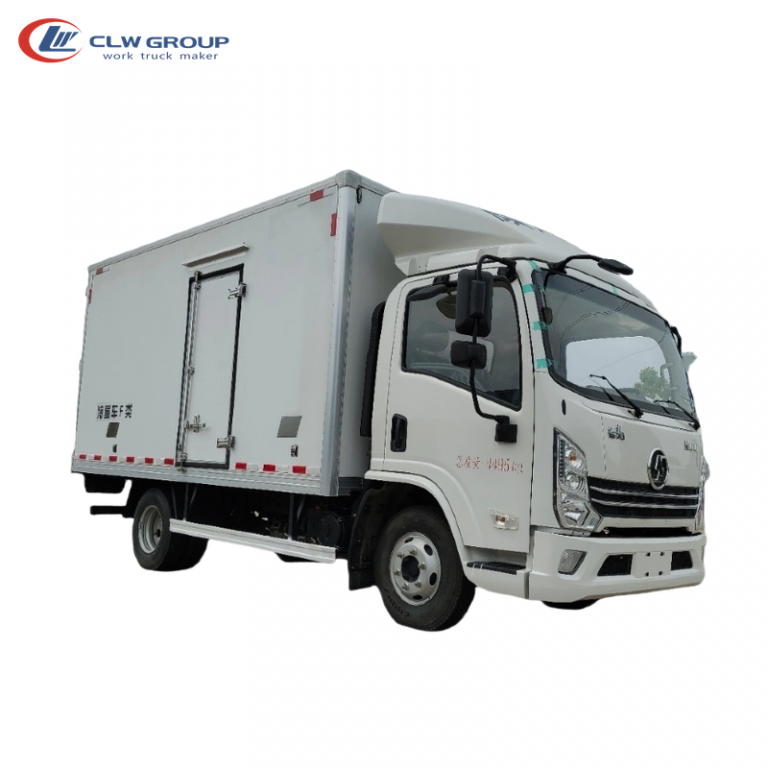Table of Contents
Toggle1. Introduction
When it comes to transporting goods, a van truck can be your best friend. Whether you’re a small business owner, a contractor, or just someone who needs to haul stuff around, understanding the ins and outs of van trucks can make your life a whole lot easier. In this guide, we’ll dive deep into what van trucks are, their benefits, and how to choose the right one for your needs. So, buckle up and let’s hit the road!
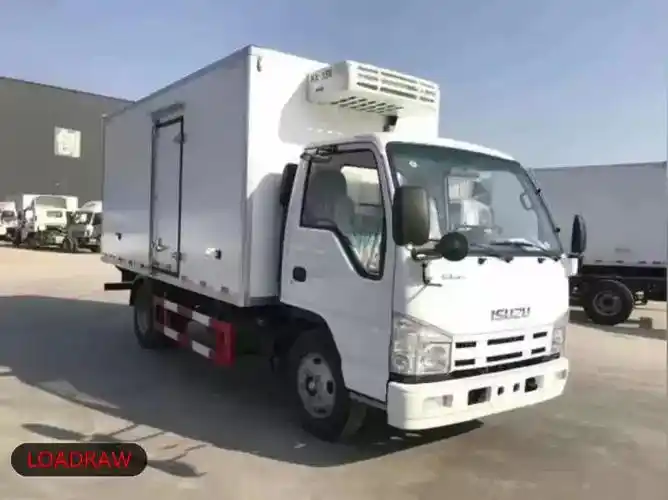
2. What is a Van Truck?
2.1 Definition
A van truck is essentially a vehicle designed for transporting goods and cargo. Unlike standard pickup trucks, van trucks come with an enclosed cargo area, which provides better protection for your items from the elements. Think of it as a hybrid between a van and a truck, offering the best of both worlds. This unique design allows for a more secure and spacious environment for your cargo, making it a popular choice for businesses and individuals alike.
2.2 Types of Van Trucks
There are several types of van trucks available, each tailored for specific needs. Some common types include:
- Cargo Vans: Perfect for businesses that need to transport goods securely. These vans often come with a high roof and a wide cargo area, making them ideal for moving boxes, tools, and equipment.
- Box Trucks: These have a large, boxy cargo area and are great for moving furniture or large items. Box trucks often have a roll-up door at the back, making loading and unloading a breeze.
- Refrigerated Vans: Ideal for transporting perishable goods, keeping them cool during transit. If you’re in the food industry, a refrigerated van truck is a must-have to ensure your products stay fresh.
- Cutaway Vans: These are versatile vehicles that can be customized for various uses, from delivery services to mobile workshops. They often have a cab that is separate from the cargo area, allowing for more flexibility in design.
3. Key Features of Van Trucks
3.1 Size and Capacity
One of the first things to consider when looking at van trucks is their size. They come in various lengths and heights, allowing you to choose one that fits your cargo needs. Whether you’re moving a few boxes or an entire office, there’s a van truck that can handle it.
For instance, a standard cargo van might have a payload capacity of around 3,000 pounds, while a larger box truck can carry up to 10,000 pounds or more. This range of options means you can select a van truck that perfectly matches your requirements, ensuring you don’t overpay for unnecessary capacity or struggle with insufficient space.
3.2 Engine and Performance
The engine is the heart of any vehicle, and van trucks are no exception. Most come equipped with powerful engines that can handle heavy loads while still providing decent fuel efficiency. This means you can haul your goods without breaking the bank on gas.
Many modern van trucks feature turbocharged engines that offer a great balance between power and efficiency. For example, a van truck with a V6 engine can provide enough torque to handle steep inclines and heavy loads, while still maintaining good fuel economy on the highway. This is particularly important for businesses that rely on their vehicles for daily operations, as fuel costs can quickly add up.
3.3 Safety Features
Safety is paramount when it comes to transporting goods. Many van trucks come with advanced safety features like anti-lock brakes, stability control, and rearview cameras. These features not only protect your cargo but also ensure your peace of mind while driving.
Additionally, some van trucks are equipped with collision avoidance systems and lane departure warnings, which can help prevent accidents on the road. These technologies are especially beneficial for drivers who spend long hours behind the wheel, as they can reduce fatigue and enhance overall safety.
4. Benefits of Using Van Trucks
4.1 Versatility
One of the biggest advantages of van trucks is their versatility. They can be used for a variety of purposes, from moving furniture to delivering packages. This makes them a great investment for businesses and individuals alike.
For example, a small business owner might use a cargo van to transport products to customers, while a contractor could use a box truck to haul tools and materials to job sites. The ability to adapt to different needs means that van trucks can serve multiple functions, making them a valuable asset.
4.2 Cost-Effectiveness
Van trucks can save you money in the long run. With their ability to carry larger loads, you can make fewer trips, which means less fuel consumption and lower overall costs. Plus, many van trucks are built to last, reducing the need for frequent repairs.
Consider this: if you’re using a smaller vehicle that requires multiple trips to transport the same amount of cargo, you’re not only spending more on fuel but also wasting valuable time. A van truck allows you to consolidate your efforts, making your operations more efficient and cost-effective.
4.3 Fuel Efficiency
In today’s world, fuel efficiency is more important than ever. Many modern van trucks are designed with fuel-saving technologies, allowing you to transport your goods without guzzling gas. This not only saves you money but also helps the environment.
For instance, some van trucks come with features like start-stop technology, which automatically shuts off the engine when the vehicle is idling. This can lead to significant fuel savings, especially in urban environments where stop-and-go traffic is common. By choosing a fuel-efficient van truck, you’re not just making a smart financial decision; you’re also contributing to a greener planet.
5. Choosing the Right Van Truck
5.1 Assessing Your Needs
Before you rush out to buy a van truck, take a moment to assess your needs. What will you be using it for? How much cargo do you need to transport? Answering these questions will help you narrow down your options.
For example, if you’re a florist who needs to deliver arrangements, a smaller cargo van might suffice. However, if you’re a moving company, you’ll likely need a larger box truck to accommodate furniture and other bulky items. Understanding your specific requirements will ensure you choose a van truck that meets your demands without overspending.
5.2 New vs. Used Van Trucks
Another important consideration is whether to buy new or used. New van trucks come with the latest features and warranties, but they can be pricey. On the other hand, used van trucks can be a great deal if you find one in good condition. Just make sure to do your research!
When considering a used van truck, it’s essential to check its maintenance history and overall condition. Look for signs of wear and tear, and don’t hesitate to ask for a vehicle history report. A well-maintained used van truck can provide excellent value and serve you well for years to come.
6. Maintenance Tips for Van Trucks
Maintaining your van truck is crucial to ensure its longevity and performance. Just like any other vehicle, regular upkeep can prevent costly repairs down the line. Here are some essential maintenance tips to keep your van truck running smoothly.
6.1 Regular Inspections
One of the best ways to keep your van truck in top shape is through regular inspections. This means checking the brakes, tires, lights, and engine components frequently.
- Brakes: Your brakes are your lifeline on the road. Make sure to check the brake pads and rotors for wear. If you hear squeaking or grinding noises, it’s time to get them inspected.
- Tires: Check the tire pressure regularly and look for any signs of uneven wear. Rotating your tires every 5,000 to 7,500 miles can help extend their lifespan.
- Fluids: Don’t forget to check the oil, coolant, and transmission fluid levels. Keeping these fluids at the right levels is essential for your engine’s health.
- Lights: Ensure all your lights are functioning properly. This includes headlights, brake lights, and turn signals. A burned-out bulb can be a safety hazard and may lead to fines.
6.2 Common Repairs
Like any vehicle, van trucks can experience wear and tear. Being aware of common repairs can help you stay ahead of potential issues.
- Brake Replacements: As mentioned earlier, brakes are critical. If you notice a decrease in braking performance, it might be time for a replacement.
- Tire Rotations and Replacements: Tires wear out over time, especially if you’re carrying heavy loads. Regular rotations can help, but eventually, you’ll need to replace them.
- Battery Maintenance: Batteries can fail unexpectedly, especially in extreme weather. Regularly check the battery terminals for corrosion and ensure the battery is securely mounted.
- Engine Tune-Ups: Regular tune-ups can help keep your engine running efficiently. This includes replacing spark plugs, air filters, and fuel filters as needed.
7. Customizing Your Van Truck
7.1 Why Customize?
Customization can turn a standard van truck into a specialized vehicle that meets your unique needs. Whether you’re looking to enhance functionality or improve aesthetics, customization can make a significant difference.
7.2 Popular Customizations
- Shelving and Storage Solutions: If you’re using your van truck for business, adding shelving units can help organize tools and materials. This not only maximizes space but also makes it easier to find what you need.
- Graphics and Branding: Adding your business logo or graphics can turn your van truck into a mobile advertisement. This is a great way to promote your brand while on the road.
- Interior Modifications: Depending on your needs, you might want to modify the interior for comfort or functionality. This could include adding seating, installing a workbench, or even creating a mobile office setup.
8. Insurance Considerations for Van Trucks
8.1 Types of Insurance
When it comes to insuring your van truck, there are several options to consider. Understanding these can help you choose the right coverage for your needs.
- Liability Insurance: This is the minimum coverage required by law. It covers damages to other vehicles or property in the event of an accident where you are at fault.
- Comprehensive Coverage: This type of insurance covers damages to your van truck from non-collision incidents, such as theft, vandalism, or natural disasters.
- Cargo Insurance: If you’re transporting goods, cargo insurance can protect your items in case of damage or loss during transit.
8.2 Choosing the Right Policy
When selecting an insurance policy, it’s essential to shop around and compare quotes from different providers. Look for policies that offer the coverage you need at a price that fits your budget. Additionally, consider the reputation of the insurance company and their customer service record.
9. The Future of Van Trucks
9.1 Electric Van Trucks
As the world moves towards sustainability, electric van trucks are becoming increasingly popular. These vehicles offer several advantages, including lower operating costs and reduced environmental impact.
- Cost Savings: Electric vehicles typically have lower fuel costs and require less maintenance than traditional gas-powered vehicles.
- Environmental Benefits: By using electric van trucks, businesses can reduce their carbon footprint and contribute to a cleaner environment.
9.2 Technological Advancements
The future of van trucks is also being shaped by technological advancements. Features like advanced driver-assistance systems (ADAS), telematics, and connectivity are becoming standard in many models.
- ADAS: These systems can help prevent accidents by providing features like adaptive cruise control, lane-keeping assist, and automatic emergency braking.
- Telematics: This technology allows fleet managers to monitor vehicle performance, track routes, and optimize fuel efficiency, leading to better overall management of resources.
10. Conclusion
In conclusion, van trucks are an invaluable asset for anyone needing to transport goods. With their versatility, cost-effectiveness, and safety features, they offer a practical solution for both businesses and individuals. By understanding what to look for and how to maintain your van truck, you can ensure it serves you well for years to come.
Whether you’re considering purchasing a new van truck, customizing an existing one, or simply looking to maintain your vehicle, the information provided in this guide will help you make informed decisions. So, are you ready to hit the road with your new van truck? Let’s get moving!

